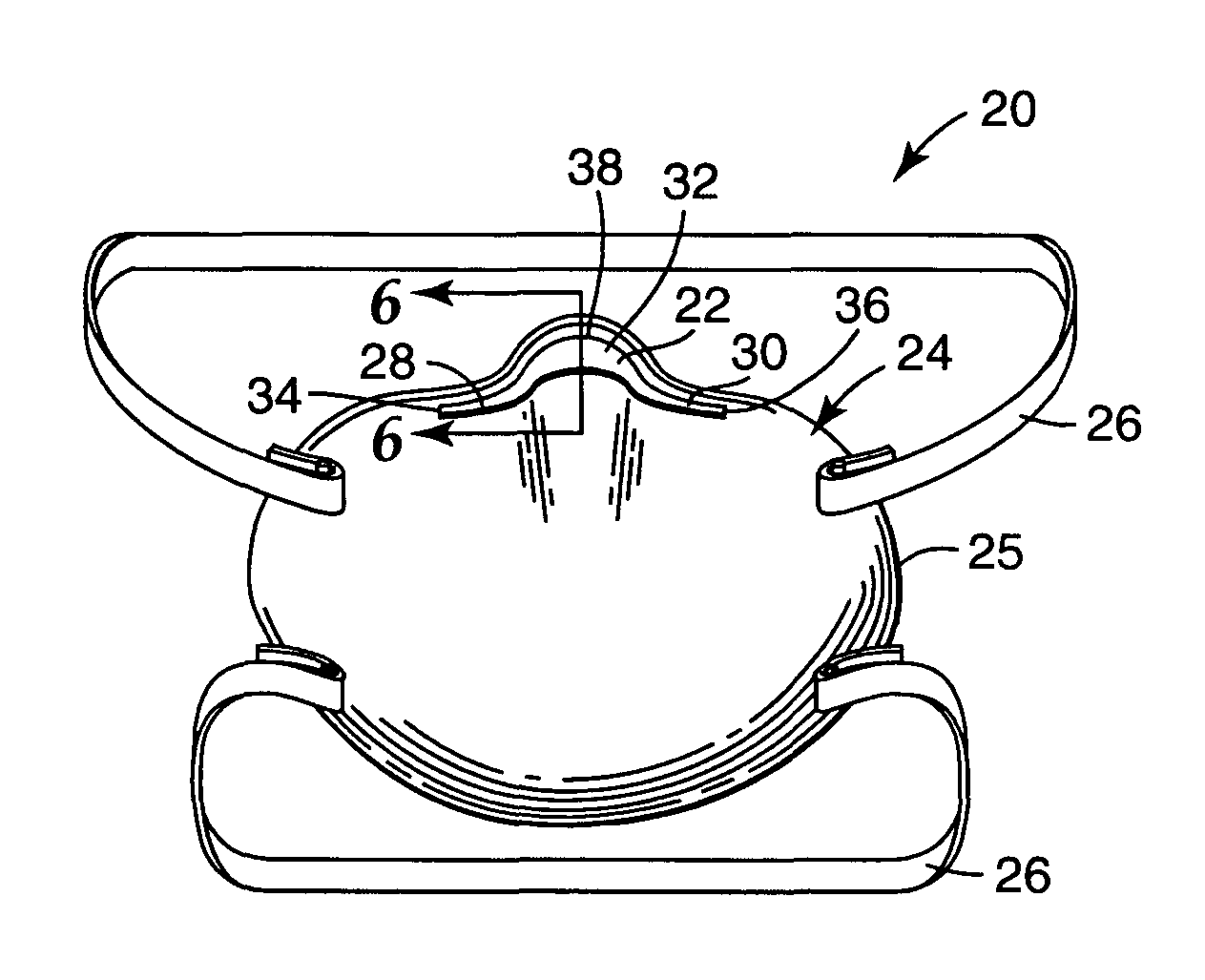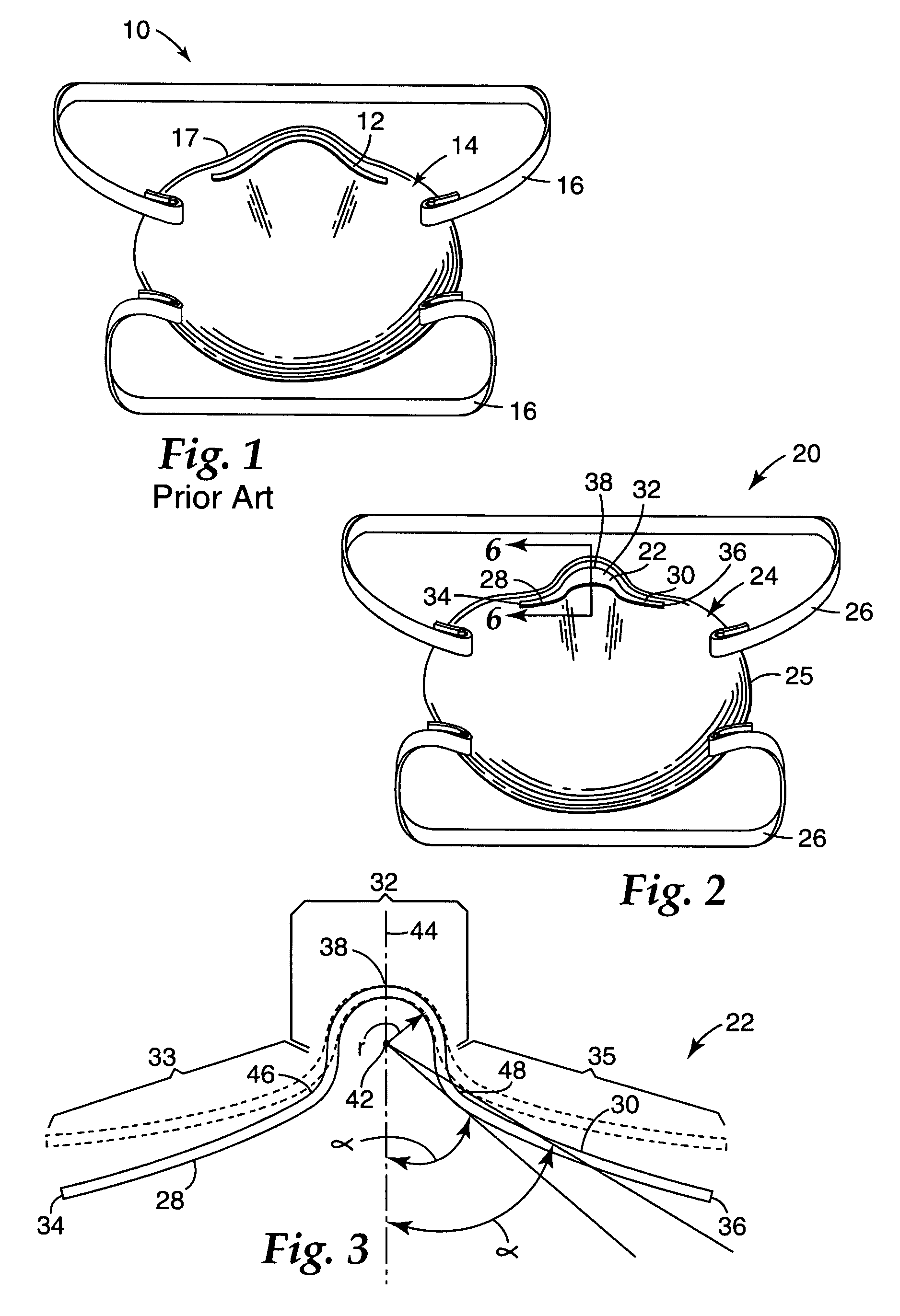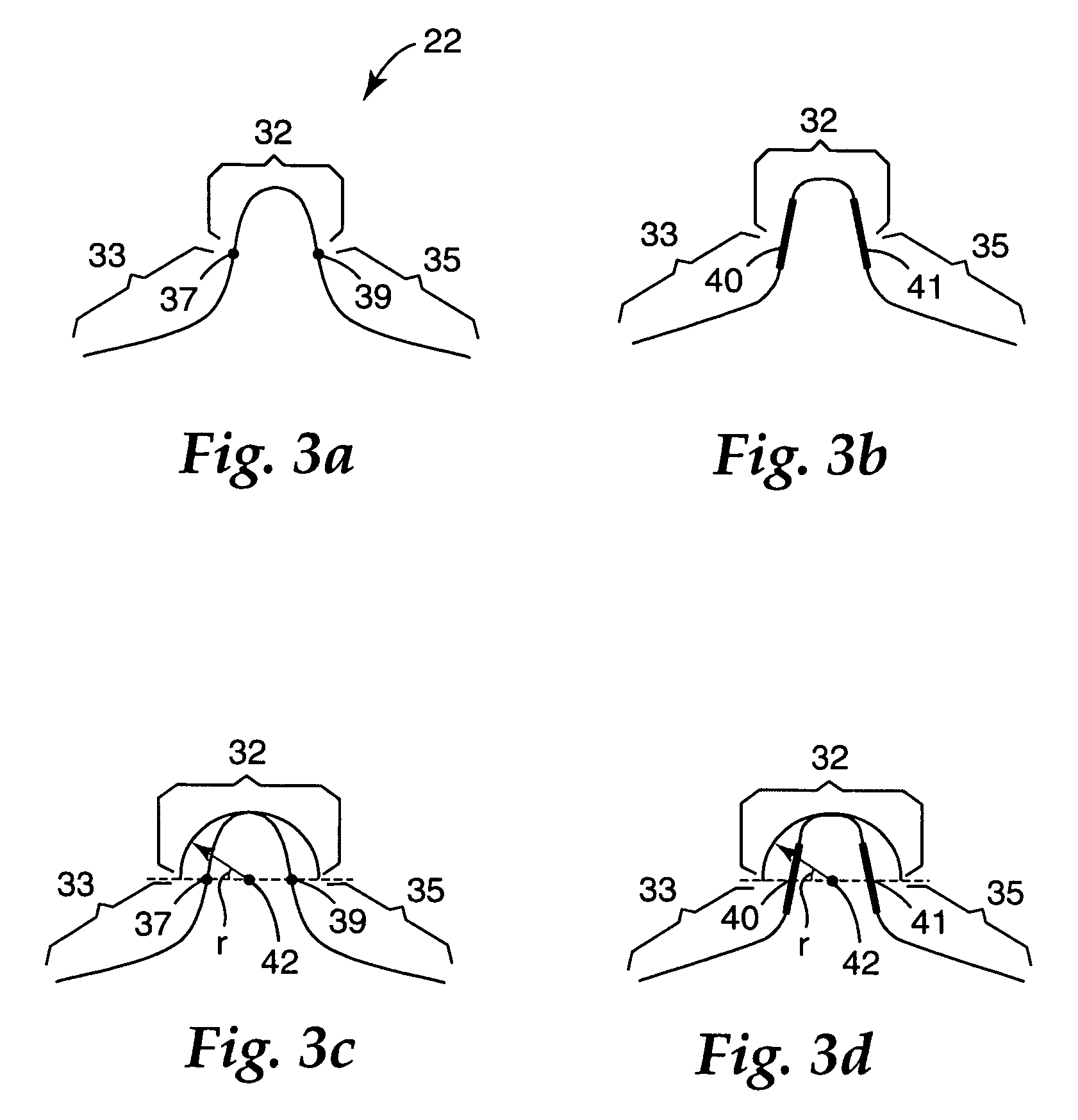Respirator having preloaded nose clip
a nose clip and nose tube technology, applied in the direction of breathing masks, breathing protection, protective garments, etc., can solve the problems of eyeglasses being fogged, eyeglasses entering the wearer's breathing track, and it is difficult to achieve a snug fit over the nose portion of the wearer, so as to improve the fit and/or comfort. effect of nos
- Summary
- Abstract
- Description
- Claims
- Application Information
AI Technical Summary
Benefits of technology
Problems solved by technology
Method used
Image
Examples
example 1
[0072]A nose clip of the invention was formed as outlined in the Nose Clip Making Procedure section set forth above. A preform having the configuration of FIG. 7 was cut from a polyethylene terephthalate (PET) film. The preform was attached to a 3M 8210™ respirator mask body (without the standard metal nose clip) using pressure sensitive tape, Scotch 300LSE High Strength, available from the 3M Company, St. Paul, Minn. The tape was applied to the entire underside of the preform to secure it to the mask. After the preform was attached to the mask, it was molded to its predefined shape while mounted to the mask body. The shaping tool shown in FIG. 9 was used to shape the preform into a nose clip. The preform was molded at a temperature of approximately 88° C. while applying a clamp force of approximately 10 Newtons for about 5 to 6 seconds. While formed on the tool, the nose clip was cooled to a temperature of approximately 60° C. for 5 to 6 minutes. Twenty masks were created in this m...
example 2
[0073]A nose clip of the invention was formed as outlined in the Nose Clip Making Procedure section set forth above. A preform that had the shape of FIG. 7, was cut from a PET film. The preform was attached to a 3M 8511™ respiratory mask body using ultrasonic welding. The preform was welded to the mask at points extending from the ends 34 and 36, inward along the β dimension, as shown in FIG. 7. After the preform was attached to the mask, it was molded to its predefined shape using the molding tool 74 shown in FIG. 9. Molding was carried out at a temperature of approximately 88° C. using a clamp force of about 10 Newtons for 5 to 6 seconds. While in the tool, the nose clip was cooled to a temperature of approximately 60° C. for 5 to 6 minutes. TIL was evaluated on three masks made in this fashion. The resulting TIL was 1.6%, 0.2%, and 6.6% on three masks fitted to three individuals.
example 3
[0074]A nose clip of the invention was formed as outlined in the Nose Clip Making Procedure section set forth above. A perform having the configuration shown in FIG. 10 was cut from PET film. The preform was attached to a 3M 8511™ respiratory mask body (without the standard metal nose clip) using ultrasonic welding. The preform was welded to the mask at points extending from the ends 34 and 36, inward along the Σ dimension, as shown in FIG. 8. After the preform was attached to the mask, it was molded on the mask using the molding tool 76 of FIG. 10 at a temperature of approximately 93° C., a clamp force of about 10 Newtons, and a dwell time of 3 to 4 seconds. While in the tool, the nose clip was cooled to a temperature of approximately 60° C. for 5 to 6 minutes. The mask of this example had good face fitting characteristics.
PUM
 Login to View More
Login to View More Abstract
Description
Claims
Application Information
 Login to View More
Login to View More - R&D
- Intellectual Property
- Life Sciences
- Materials
- Tech Scout
- Unparalleled Data Quality
- Higher Quality Content
- 60% Fewer Hallucinations
Browse by: Latest US Patents, China's latest patents, Technical Efficacy Thesaurus, Application Domain, Technology Topic, Popular Technical Reports.
© 2025 PatSnap. All rights reserved.Legal|Privacy policy|Modern Slavery Act Transparency Statement|Sitemap|About US| Contact US: help@patsnap.com



